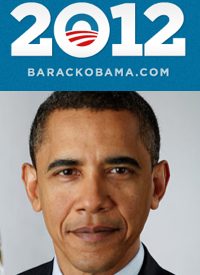
The Obama campaign announced Monday that former lobbyist and veteran Democratic attorney Broderick Johnson will serve as senior adviser to the President’s 2012 reelection team. Before founding a communications company this spring, Johnson worked for the powerhouse lobbying firm Bryan Cave LLP, where he represented a number of high-profile clients, including FedEx, Comcast, Microsoft, and TransCanada, the Calgary-based energy company planning to build the controversial 1,700-mile Keystone XL pipeline which would transport Canadian crude oil from Alberta, Canada, to the Texas Gulf Coast. Johnson has some experience in campaign politics, as he was “closely involved” in past Democratic presidential bids, and in 2008, he “served as an informal advisor to the Obama presidential campaign,” according to his communications firm’s website.
“I accept this opportunity to join the senior staff of the Obama-Biden 2012 campaign with great pride and a strong sense of duty,” Johnson said in a statement. “We must reelect the President in order to build an economy that rewards hard work and restores economic security for the middle class and that provides an opportunity to families working hard to rise above poverty.”
“Broderick joins the campaign with the insight of many years of experience in public service and on campaigns, including the 2008 campaign,” applauded Jim Messina, campaign manager for Obamas reelection team. “Broderick will be an invaluable advisor to the campaign as well as our representative at key events around the country.”
A campaign aide gave assurance that Johnson has deregistered as a lobbyist and that matters relating to his former clients will have no bearing on the Presidents campaign strategies. The aide slandered GOP candidates for taking contributions from the deep pockets of K Street, while emphasizing that Obama will not accept campaign contributions from lobbyists, who harbor an unabashed role in Washington politics. “The Republican candidates are relying on Washington lobbyists who are seeking to influence the policymaking process to bankroll their campaigns,” the aide charged.
During his first presidential campaign, Obama declared that his administration would be the “most transparent” government in U.S. history, and that his political actions would not be massaged by the clout of K Streets generous bankrolls. The President has echoed similar sentiments during critical points in his presidency. “We have a deficit of trust [and] to close that credibility gap,” Obama proclaimed during his 2010 State of the Union address, we must “end the outsized influence of lobbyists; to do our work openly; to give our people the government they deserve.”
Obamas so-called venture in stonewalling K Street will now surely be under fire, as an influential former lobbyist and a potent force in the financial industry now holds a firm hand in the Presidents reelection efforts.
Even more controversial are Johnsons alleged ties to TransCanadas Keystone XL project ironically now awaiting approval from the Obama administration, as the pipeline requires a permit because it crosses a federal border.
Federal lobbyist filings show that TransCanada paid the firm Bryan Cave more than $200,000 for Johnsons work on promoting the “submission for a presidential permit for Keystone XL Pipeline.” Although TransCanada spokesman Terry Cunha denied Johnson took part in any lobbying for Keystone XL, the filings report that Johnson lobbied Congress, the White House, and the State Department on behalf of the company.
Unsurprisingly, many environmental groups are outraged at Johnsons appointment. “President Obama ran for office in 2008 promising that the days of lobbyists setting the agenda in Washington were over, yet now hes hired a top oil pipeline lobbyist into his campaign,” charged Kim Huynh of Friends of the Earth, an environmental advocacy group. “This is a deeply troubling development.”
Global warming activist and staunch Keystone XL critic Bill McKibben railed on Obamas decision, writing in an emailed statement, “I dont think you could conceive a more elaborate way to disrespect not just the environmental community but also Occupy Wall Street, because this is simply a reminder of the way that corporate lobbyists dominate our politics Forget Hope and Change its like they want their new slogan to be Business as Usual.”
Occupy Wall Street protesters ought to take note of the fact if for no other reason than to avoid blatant hypocrisy that Johnson also lobbied high-profile trade groups, one being the Financial Services Forum. Why is this significant? Among the forums members are executives from Morgan Stanley, Bank of America, Goldman Sachs, JP Morgan, and none other than CEO of AIG Robert Benmosche who demanded a corporate jet from AIG and threatened to resign over government-prescribed salary restrictions.
The President insists that he will not take part in special interest politicking, but it is apparent that Johnson has deep connections in the financial industry, a sector which Obama has ostracized through his class warfare rhetoric and demonization of Americas financial elites. One might suggest that Broderick Johnson was brought in simply to clean up the Presidents verbal blunders and rekindle Wall Streets charitable bounties. After all, when approval ratings are down, campaign contributions are critical.



